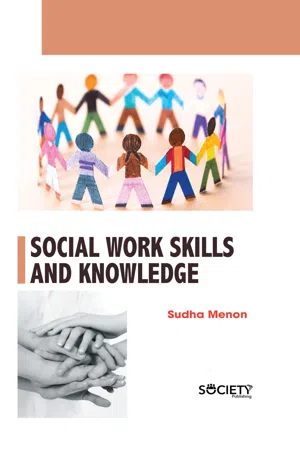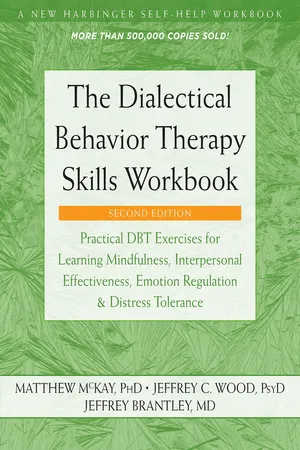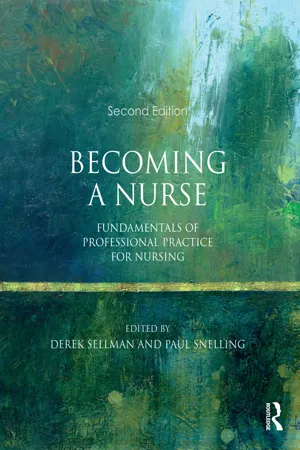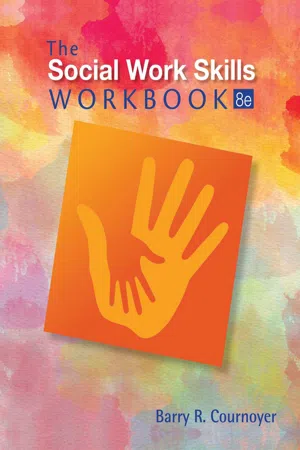Business
Interpersonal Skills
Interpersonal skills refer to the ability to effectively communicate, collaborate, and interact with others. In a business setting, strong interpersonal skills are essential for building relationships, resolving conflicts, and fostering teamwork. These skills encompass verbal and nonverbal communication, active listening, empathy, and the ability to navigate diverse perspectives and personalities within the workplace.
Written by Perlego with AI-assistance
Related key terms
1 of 5
12 Key excerpts on "Interpersonal Skills"
- eBook - ePub
- Jeremy Stranks(Author)
- 2007(Publication Date)
- Routledge(Publisher)
Interpersonal Skills are an important feature of human behaviour. Everyone has their own particular set of Interpersonal Skills, characterized by features such as confidence in reaching decisions, the ability to motivate people and resolve conflicts amongst members of their group. People rely on these skills in order to be accepted in society and co-exist with others.Interpersonal Skills depend upon relationships between people which may take a variety of forms. They are affected by a number of factors, such as individual listening skills, confidence, respect for others, the amount of time people are prepared to share with each other and the ability to communicate well.Key points
- Important Interpersonal Skills include leadership, team work, the ability to make decisions and social skills where, for example, a group of people need to collaborate in project work.
- In particular, managers need to be capable of delegating and motivating their subordinates in all sorts of ways through the display of leadership and communication skills.
- Interpersonal Skills are based on the relationships between people which can take many forms from family relationships, friendships and partnerships.
- A number of theories of interpersonal relationships have been proposed in recent years including the social exchange theory, the equity theory and the concept of ‘socionomics’.
- Interpersonal Skills are very much connected with communication and understanding.
- There is a need for organizations to identify the extent of Interpersonal Skills required by people at different levels of the organization.
- Management styles are particularly important, together with the quality of leadership.
- Conflict is a situation which can arise as a result of both poor Interpersonal Skills and inadequate communication on the part of the parties concerned, and there is a need for some form of conflict resolution in these cases.
- There is a relationship between skills and accidents, particularly with respect to factors such as reaction time and the inability of some people to co-ordinate aspects of the work they undertake.
- eBook - PDF
- Sudha Menon(Author)
- 2019(Publication Date)
- Society Publishing(Publisher)
When people master interpersonal relationship skills, they can comfortably interact with others and get positive results from the interactions. There are many types of interpersonal relationship skills that cover listening, emotional intelligence, verbal and nonverbal aspects of communication. The most common examples of interpersonal relationship skills are emotional intelligence and empathy. Emotional intelligence is exhibited when one accurately reads and interprets the emotional reaction of others to the aspects of the interaction process. Also, for one to show that he or she is emotionally intelligent, the person must understand his emotional response to issues and manage his emotions during the interaction process. On the other hand, empathy is the ability to understand the emotional impact of the experiences that people have and to shape the responses according to the needs of the interaction process. A person who is empathic will listen to a client, within the context of social work practice, and understand how their emotional response to the things that the client says affects their performance. Interpersonal relationship skills are necessary for social workers because, in practice, social work is hinged on the need to help clients address their problems (Ross, 2015). Social workers are committed to using their expertise to address complicated problems that people in the society face. For social workers to achieve this primary objective of the practice, they have to interact with their clients during the sessions. For social workers to manage their clients effectively, they need to have very high levels of interpersonal relationship skills. Thus, social workers need to have the Interpersonal Relationship Skills in Social Work 197 ability to understand how the emotional response of people to past events shapes their perception of truth in the current time. - eBook - ePub
Ultimate Basic Business Skills
Training an Effective Workforce
- Christee Gabour Atwood(Author)
- 2009(Publication Date)
- Association for Talent Development(Publisher)
- Communication Skills
- Presentation Skills
- Basic Networking
- Conflict Management
The four modules in this section represent the Interpersonal Skills that equip employees to communicate effectively and address the challenges that arise with the diverse thinking of a well-balanced workplace.Innovative and exciting new ideas must be shared to become reality. Comments and suggestions need to be interpreted in the same positive spirit in which they are given. Effective networking to share best practices creates an even more motivated workforce that is able to apply lessons learned from both inside and outside its four walls.No one doubts the importance of Interpersonal Skills, but many think that these skills are inherent and do not need development. True professionals recognize the need for continual development of these abilities and strive to practice their Interpersonal Skills, improve communication methods, and apply the concepts of emotional intelligence, so they can help create a more cohesive workforce.What’s in Each Module?
In the module “Communication Skills,” participants assess their current skill level and determine areas for potential improvement. The session includes a segment on the practices of active listening, which outlines methods to overcome distractions and to interpret spoken and unspoken messages. This program also addresses how to send clear and concise messages, as well as how to align body language and tone with the message being communicated. Other segments include an introduction to the concept of emotional intelligence and an overview of methods to resolve communication challenges.“Presentation Skills” walks learners through the steps of designing and delivering presentations. The central theme of this workshop is to keep both the goal and the audience in mind when you create presentations. Also included is a segment on the elevator speech, a tool for those who need to learn how to condense messages into the most important points. The module also outlines tips and techniques for proper use of a frequently abused tool, the PowerPoint presentation. - eBook - PDF
- Cindi Reiman(Author)
- 2022(Publication Date)
- For Dummies(Publisher)
2 Going Even Further with Soft Skills IN THIS PART . . . Understand the three Vs of communication. Respect diversity and model inclusion by embracing people’s differences. Set the stage to make a good impression through your appearance and etiquette. Manage your time to be efficient and productive. Build a strong sense of teamwork and manage conflict among teammates. Develop your ability to ask questions, think critically and independently, and solve problems. Put the ten work-ethic traits to use. Enhance your leadership skills and recognize different types of leaders. CHAPTER 4 Being Clear with Interpersonal Communication 49 Chapter 4 Being Clear with Interpersonal Communication I n this chapter, I talk about, well, talking. But we also talk about listening, which is one of the most important soft skills you can acquire in pursuing work and life success. Most importantly, I talk about connecting. It’s a fact: People who are able to truly connect with others . . . You can make posi- tive connections with your co-workers, managers, friends, and family members in all kinds of ways, and they all include the ability to communicate clearly and effectively. Making all the Right Connections Are you the kind of communicator that gets as good as you give? A good commu- nicator really listens when someone is talking by concentrating on the speaker’s words and voice inflections. A good communicator also watches to see what the speaker isn’t saying in actual words but is clearly conveying with their body IN THIS CHAPTER » Understanding the importance of good communication skills » Using the three Vs of interpersonal communication » Identifying the ten listening blocks that break down communication » Communicating with strong verbal and nonverbal messages 50 PART 2 Going Even Further with Soft Skills language. - eBook - PDF
- Brantley, Jeffrey, Wood, Jeffrey C., McKay, Matthew(Authors)
- 2019(Publication Date)
- New Harbinger Publications(Publisher)
This chapter and the next will give you new tools to manage how you function in relationships. Sometimes they’ll work, sometimes they won’t; and some- times you may forget to use them. But you’ll also be amazed how much they can improve a conversation or help to solve a problem. It’s hard, but it’s okay if you fall down sometimes—if you blow up or withdraw—because it takes time to learn a new way. Practicing your new Interpersonal Skills will yield the following results: • Help you be more effective in your dealings with people • Improve your ability to get your needs met • Help you negotiate conflicts without damaging a relationship • Strengthen your self-respect by giving you alternatives to old, damaging patterns of anger or withdrawal KEY Interpersonal Skills There are six core Interpersonal Skills that will change how your relationships feel: 1. Knowing what you want. How do you know what you want in a relationship? In some cases, you sense a yearning. Or you’re aware of discomfort. The key is to pay attention and look for a way to describe, in your own mind, what you’re feeling. 2. Asking for what you want—in a way that protects the relationship. The next chapter will give you an effective method and format for doing this. But for the moment, the basic idea is to put your needs into words that are clear, not attacking, and ask for specific behavioral change. 3. Negotiating conflicting wants. The willingness to negotiate starts with a clear commitment that there won’t be winners or losers. It assumes that each person’s needs are valid and understandable, and it draws on a willingness to compromise so that each person gets some of what he or she wants. A simple protocol for negotiating conflicting needs is provided in the next chapter. 4. Getting information. One of the most crucial of all Interpersonal Skills is finding out what the other person needs, fears, hopes for, and so on. - eBook - PDF
Doing Business with Japan
Successful Strategies for Intercultural Communication
- Kazuo Nishiyama(Author)
- 2000(Publication Date)
- University of Hawaii Press(Publisher)
Interpersonal Communication and Sales Presentation I nterpersonal communication has become the most important means of communication in today’s international business.Thanks to the tremendous technological advancements in the electronic communications media and in air transportation, international busi-nessmen are able to conduct their businesses via worldwide net-works of fiber-optic links for long-distance telephones, facsimile machines, Internet computer networks, and video-conferencing systems.They routinely send and receive both verbal and nonverbal messages instantaneously through these means of communication. They frequently fly to and from foreign countries to hold meetings with their business associates overseas. In fact, millions of interna-tional businesspeople crisscross the Pacific and Atlantic oceans every day to hold face-to-face meetings. However, they still encounter many problems in communicating with each other, as they usually do not share the same linguistic and cultural backgrounds. Misunderstandings often occur because one or both sides do not have adequate language skills and because they, knowingly or unknowingly, violate each other’s cultural norms or expectations. Interpersonal Communication In communicating with the Japanese, foreign businesspeople need to recognize several important variables that directly affect the 4 c h a p t e r process and the outcome of interpersonal communication. These variables are communication skills, attitudes, level of technical knowledge, cultural factors, purpose of communication, and com-munication context. Communication Skills Communication skills can be categorized into speaking, listening, reading, writing, and thinking or reasoning. Ideally, both parties engaging in interpersonal communication have the same or simi-lar level of competency in these communication skills. - Deborah Britt Roebuck(Author)
- 2012(Publication Date)
- Business Expert Press(Publisher)
Chapter 2 Gaining Insight Into the Role of Interpersonal Communication Skills for Today’s Managerial LeadersAlmost all of us feel that we are effective communicators, and, if there is a communication breakdown, “others” are the problem. We typically think that we communicate at least as well, if not better than, everyone else. However, the vast majority of people who fail at work do so for one reason: they do not relate well to other people. A recent survey of 1400 corporate executives, employees, and educators across diverse market sectors, including financial, health care, technology, and manufacturing, found that 86 percent of the respondents blamed a lack of collaboration or ineffective communication for workplace failures.1 It seems, more often than not, the interpersonal aspect of communication stands in the way rather than someone’s inability to deliver an accurate message. Ineffective interpersonal communication may lead individuals to- Dislike each other
- Be offended by each other
- Lose confidence in each other
- Refuse to listen to each other
- Disagree with each other
These interpersonal problems generally lead to restricted communication flow, inaccurate messages, and misinterpretations of meanings. In my research study of 88 managers, the number one problem they faced daily was miscommunication, as reflected by this statement from one of the respondents: “I think the most common communication problems revolve around a failure to be in sync with each other, generally due to personal and environmental factors that make it difficult to really hear what the other person is saying.” Clearly, this statement indicates that communication usually breaks down due to people issues.It’s difficult to think of any job in which communication is not vital for individual as well as organizational success. But you should not despair, because your communication style and behavior have been learned and thus you can change it if you are willing to do so. As a managerial leader, you should believe you can always grow and learn to be a better communicator, and, with that attitude, you will serve as an authentic role model for others.- eBook - ePub
- Nicola Davis, Alison C Clark, Karen Sumpton, Caroline Plaice, Suzanne Waugh, Martina O′Brien(Authors)
- 2011(Publication Date)
- Learning Matters(Publisher)
- understand why it is so important for nurses to continually develop their Interpersonal Skills;
- understand the range of verbal and non-verbal cues that help us communicate effectively with each other;
- explore how developing Interpersonal Skills can help both the therapeutic relationship and working relationships.
Introduction
Case Study
Luca is just about to leave school and is considering his career options. He has found it stressful being at school because he feels quite shy and does not find it easy to socialise with strangers. Yet he imagines that he would like to do a job where he can help people. He goes to see the school careers adviser and discusses how he might overcome his shyness in order to be able to work effectively with other people. The careers advisor suggests that Luca joins a special interest group or even applies for a part-time job in a small shop. In this way, he might develop his ability to interact with other people.One of the most important key skills that all nurses need to develop is the ability to communicate effectively with all of the people with whom you work. This requires well-developed Interpersonal Skills (IPS). When you applied for your nursing course, you communicated with academic staff who wanted to know why you applied. You are now forging new working relationships during your studies with peers, staff and, most importantly, clients. This starts within theory modules, but will enter a new level when you go into practice, when you will be dealing with new working pressures.Nurses have a key co-ordinating role within healthcare and are frequently directly involved in the delivery of care. So how you interact with patients (service users or clients) is crucial to how the therapeutic relationship develops. Patients may very well judge nurses by how well they communicate. They quite rightly expect you to be approachable, friendly and able to communicate effectively with them. It can be a major source of complaint when you fail to communicate effectively. This is an expectation reinforced by the NMC, which recognises how important nurses’ behaviour is in all the work that they do. - eBook - PDF
Communication
Motivation, Knowledge, Skills / 3rd Edition
- Kevin Barge, Sherwyn P. Morreale, Brian Spitzberg(Authors)
- 2012(Publication Date)
Interpersonal Communication: Building Knowledge :. 133 on the bar did not work Sometimes it is good to analyze what to say or do, but in some situations the best plan is to follow your instincts In order to make the best choices, you need to know more about interpersonal communication and how it works WHAT IS INTERPERSONAL COMMUNICATION? To understand how we develop knowledge in interpersonal communication, it is important first to understand what interpersonal communication is It can be understood in many ways, but it comes down to two central concepts: interaction and relationship INTERPERSONAL COMMUNICATION AS INTERACTION. In Chapter One, communication was defined as the process of managing messages and media for the purpose of creating meaning In Chapter Two, the interper- sonal context of communication was described as an interaction among people in social or personal relationships Combining these two definitions, interpersonal communication is the pro- cess of managing messages and media for the purpose of creat- ing meaning in interactions among people in social or personal relationships Interaction means that there is interdependence among the behaviors or moves made by the communicators in a situ- ation One of the most essential aspects of conversation is that it tends to consist of paired types of speech 1 For example, ques- tions tend to elicit answers Disclosures tend to elicit other dis- closures Greetings tend to elicit other greetings Any statement on one topic tends to elicit a response that is relevant to that topic So interaction means that one person’s actions influence the actions of the other, and this interdependence of action is core to all relationships INTERPERSONAL COMMUNICATION AS RELATIONSHIP. - eBook - PDF
Management Skills for Effective Planners
A Practical Guide
- Dory Reeves(Author)
- 2017(Publication Date)
- Red Globe Press(Publisher)
Ability to develop and use networks of colleagues to help solve key workplace problems 3.61 3. Ability to develop and contribute positively to team-based projects 3.52 4. Shows an understanding of how different groups that make up an organization operate and how much influence they have in different situations 3.48 5. Ability to listen to different points of view before coming to a decision 3.47 6. Ability to empathize and work productively with a range of people from different disciplines, social and cultural backgrounds 3.44 7. Ability to work with senior staff and decision makers with-out being intimated 3.44 8. Ability to give constructive feedback to work colleagues and others without engaging in personal blame 3.31 9. Ability to motivate others to do great things 2.92 Table 3.1 Interpersonal attributes in order of agreement – Early-career planners Note: n =77 Interpersonal Capability 57 welfare. The early-career planner experiences relationships with a number of different actors and agencies, illustrated by a four-way stakeholder model Figure 3.1. The vertical links depict the hier-archical relationship with a line manager and assistants, whereas the horizontal lines depict the more equal dealings with profes-sional peers, clients, the public, citizens and communities. This first attribute focuses on the distinctive features of the relation-ship planners have with citizens as individuals and as collective members of communities. At the heart of positive interaction is trust or trustworthiness. Whilst technical knowledge and due process are very important, studies have shown that trust and trustworthiness are a function not only of knowing the topic but also of being able to interact pos-itively (Tait and Hansen 2013; Brown and Chin 2013). As Giddens put it, trust in institutions is built through ‘facework’ (Giddens 1991: 80), and those who represent the institution. - eBook - ePub
Becoming a Nurse
Fundamentals of Professional Practice for Nursing
- Derek Sellman, Paul Snelling, Derek Sellman, Paul Snelling(Authors)
- 2016(Publication Date)
- Routledge(Publisher)
The chapter is divided into three parts. In Part 1 an outline is offered of the importance of effective communication and Interpersonal Skills in relation to nursing practice. This is accompanied by a brief overview of the scope of the subject area.Part 2 provides a fuller explanation of the importance of nurses being effective in communication and Interpersonal Skills. A brief review of verbal and para-verbal aspects of communication is offered before explaining two aspects of building and maintaining the therapeutic relationship: (i) building and maintaining trust; and (ii) demonstrating respect, empathy and genuineness.In Part 3, a deeper exploration of communication and Interpersonal Skills is provided with an emphasis on some more advanced and complex aspects of developing and maintaining a therapeutic relationship. Some information relating to barriers to and disengaging from therapeutic relationships concludes the chapter.Part 1 Outlining Communication and Interpersonal Skills
Case 14.1Almira is a third-year student nurse working on a general medical ward in a small local hospital. Suzanne (Almira’s mentor) is a larger than life personality who was born and brought up in the local community. Almira finds Suzanne loud and a little overbearing with her unrestrained jollity, her tendency to stand a bit too close, and her (over) use of physical contact. Almira notices that Suzanne tends to call everyone (staff and patients) ‘pet’ and is surprised that no one seems to mind. Almira is not sure she likes being called pet, but she does not voice her objections because it seems to be accepted as part of the ward culture and, anyway, she is intimidated by Suzanne.The importance of developing communication skills
Stickley and Freshwater argue that ‘nursing involves the formation of a meaningful relationship through the development of an effective interpersonal process’ (2006, p. 13). They point out that a need for improvement remains despite emphasis placed on the importance of effective interpersonal and communication skills in nursing. - eBook - PDF
- Barry Cournoyer(Author)
- 2016(Publication Date)
- Cengage Learning EMEA(Publisher)
PA R T PA R T CHAPTER 6 Talking and Listening: The Basic Interpersonal Skills 207 CHAPTER 7 Preparing 249 CHAPTER 8 Beginning 273 CHAPTER 9 Exploring 301 CHAPTER 10 Assessing 357 CHAPTER 11 Contracting 411 CHAPTER 12 Working and Evaluating 443 CHAPTER 13 Ending 499 2 Social Work Skills 205 Copyright 2017 Cengage Learning. All Rights Reserved. May not be copied, scanned, or duplicated, in whole or in part. Due to electronic rights, some third party content may be suppressed from the eBook and/or eChapter(s). Editorial review has deemed that any suppressed content does not materially affect the overall learning experience. Cengage Learning reserves the right to remove additional content at any time if subsequent rights restrictions require it. Copyright 2017 Cengage Learning. All Rights Reserved. May not be copied, scanned, or duplicated, in whole or in part. Due to electronic rights, some third party content may be suppressed from the eBook and/or eChapter(s). Editorial review has deemed that any suppressed content does not materially affect the overall learning experience. Cengage Learning reserves the right to remove additional content at any time if subsequent rights restrictions require it. 207 I n this chapter, we explore the basic Interpersonal Skills of talking and listening. These include the processes social workers adopt to access a place of peace, engage diversity and difference with cultural sensitivity, observe and listen accurately and compassionately, and exchange information with others. They apply in our professional activities and, of course, in our personal lives as well. For convenience, we use the term talking to refer to the processes involved in sending and listening to refer to those used in receiving messages—regardless of the Chapter Goals Following completion of this chapter, you should be able to: ● ● Access a place of peace. ● ● Engage diversity and difference with cultural sensitivity.
Index pages curate the most relevant extracts from our library of academic textbooks. They’ve been created using an in-house natural language model (NLM), each adding context and meaning to key research topics.











